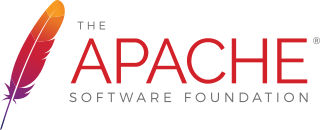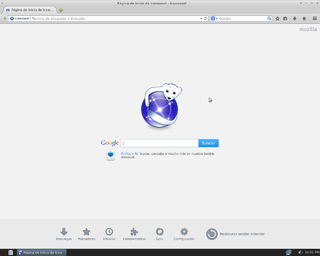Related Research Articles

Free software, libre software, libreware sometimes known as freedom-respecting software is computer software distributed under terms that allow users to run the software for any purpose as well as to study, change, and distribute it and any adapted versions. Free software is a matter of liberty, not price; all users are legally free to do what they want with their copies of a free software regardless of how much is paid to obtain the program. Computer programs are deemed "free" if they give end-users ultimate control over the software and, subsequently, over their devices.

Open-source licenses are software licenses that allow content to be used, modified, and shared. They facilitate free and open-source software (FOSS) development. Intellectual property (IP) laws restrict the modification and sharing of creative works. Free and open-source licenses use these existing legal structures for an inverse purpose. They grant the recipient the rights to use the software, examine the source code, modify it, and distribute the modifications. These criteria are outlined in the Open Source Definition.
The Open Source Definition (OSD) is a document published by the Open Source Initiative. Derived from Bruce Perens' Debian Free Software Guidelines, the definition is the most common standard for open-source software. The definition has ten criteria, such as requiring freely accessed source code and granting the open-source rights to everyone who receives a copy of the program. Covering both copyleft and permissive licenses, it is effectively identical to the definition of free software, but motivated by more pragmatic and business-friendly considerations. The Open Source Initiative's board votes on proposals of licenses to certify that they are compliant with the definition, and maintains a list of compliant licenses on its website. The definition has been adapted into the Open Knowledge Foundation's Open Definition for open knowledge and into open hardware definitions.

The Apache License is a permissive free software license written by the Apache Software Foundation (ASF). It allows users to use the software for any purpose, to distribute it, to modify it, and to distribute modified versions of the software under the terms of the license, without concern for royalties. The ASF and its projects release their software products under the Apache License. The license is also used by many non-ASF projects.
The Open Software License (OSL) is a software license created by Lawrence Rosen. The Open Source Initiative (OSI) has certified it as an open-source license, but the Debian project judged version 1.1 to be incompatible with the DFSG. The OSL is a copyleft license, with a termination clause triggered by filing a lawsuit alleging patent infringement.

Open-source software (OSS) is computer software that is released under a license in which the copyright holder grants users the rights to use, study, change, and distribute the software and its source code to anyone and for any purpose. Open-source software may be developed in a collaborative, public manner. Open-source software is a prominent example of open collaboration, meaning any capable user is able to participate online in development, making the number of possible contributors indefinite. The ability to examine the code facilitates public trust in the software.
The Netscape Public License (NPL) is a free software license, the license under which Netscape Communications Corporation originally released Mozilla.
The Mozilla Public License (MPL) is a free and open-source weak copyleft license for most Mozilla Foundation software such as Firefox and Thunderbird. The MPL is developed and maintained by Mozilla, which seeks to balance the concerns of both open-source and proprietary developers. It is distinguished from others as a middle ground between the permissive software BSD-style licenses and the GNU General Public License. As such, it allows the integration of MPL-licensed code into proprietary codebases, as long as the MPL-licensed components remain accessible under the terms of the MPL.
The Sun Industry Standards Source License (SISSL) is now a retired free and open source license, recognized as such by the Free Software Foundation and the Open Source Initiative (OSI). Under SISSL, developers could modify and distribute source code and derived binaries freely. Furthermore, developers could choose to keep their modifications private or make them public. However, the SISSL is unique among OSI-approved licenses in requiring that "The Modifications which You create must comply with all requirements set out by the Standards body in effect one hundred twenty (120) days before You ship the Contributor Version." If the Modifications do not comply, SISSL becomes a copyleft license, and source must be published "under the same terms as this license [SISSL] on a royalty-free basis within thirty (30) days."
The Common Development and Distribution License (CDDL) is a free and open-source software license, produced by Sun Microsystems, based on the Mozilla Public License (MPL). Files licensed under the CDDL can be combined with files licensed under other licenses, whether open source or proprietary. In 2005 the Open Source Initiative approved the license. The Free Software Foundation (FSF) considers it a free software license, but one which is incompatible with the GNU General Public License (GPL).

In 2006, a branding issue developed when Mike Connor, representing the Mozilla Corporation, requested that the Debian Project comply with Mozilla standards for use of the Thunderbird trademark when redistributing the Thunderbird software. At issue were modifications not approved by the Mozilla Foundation, when the name for the software remained the same.
This comparison only covers software licenses which have a linked Wikipedia article for details and which are approved by at least one of the following expert groups: the Free Software Foundation, the Open Source Initiative, the Debian Project and the Fedora Project. For a list of licenses not specifically intended for software, see List of free-content licences.
The PHP License is the open-source license under which the PHP scripting language is released. The PHP License is designed to encourage widespread adoption of the source code. Redistribution is permitted in source or binary form with or without modifications, with some caveats.
License compatibility is a legal framework that allows for pieces of software with different software licenses to be distributed together. The need for such a framework arises because the different licenses can contain contradictory requirements, rendering it impossible to legally combine source code from separately-licensed software in order to create and publish a new program. Proprietary licenses are generally program-specific and incompatible; authors must negotiate to combine code. Copyleft licenses are commonly deliberately incompatible with proprietary licenses, in order to prevent copyleft software from being re-licensed under a proprietary license, turning it into proprietary software. Many copyleft licenses explicitly allow relicensing under some other copyleft licenses. Permissive licenses are compatible with everything, including proprietary licenses; there is thus no guarantee that all derived works will remain under a permissive license.

A free-software license is a notice that grants the recipient of a piece of software extensive rights to modify and redistribute that software. These actions are usually prohibited by copyright law, but the rights-holder of a piece of software can remove these restrictions by accompanying the software with a software license which grants the recipient these rights. Software using such a license is free software as conferred by the copyright holder. Free-software licenses are applied to software in source code and also binary object-code form, as the copyright law recognizes both forms.

Copyleft is the legal technique of granting certain freedoms over copies of copyrighted works with the requirement that the same rights be preserved in derivative works. In this sense, freedoms refers to the use of the work for any purpose, and the ability to modify, copy, share, and redistribute the work, with or without a fee. Licenses which implement copyleft can be used to maintain copyright conditions for works ranging from computer software, to documents, art, and scientific discoveries, and similar approaches have even been applied to certain patents.

The GNU General Public Licenses are a series of widely used free software licenses, or copyleft licenses, that guarantee end users the freedoms to run, study, share, and/or modify the software. The GPL was the first copyleft license available for general use. It was originally written by Richard Stallman, the founder of the Free Software Foundation (FSF), for the GNU Project. The license grants the recipients of a computer program the rights of the Free Software Definition. The licenses in the GPL series are all copyleft licenses, which means that any derivative work must be distributed under the same or equivalent license terms. It is more restrictive than the Lesser General Public License, and even further distinct from the more widely-used permissive software licenses such as BSD, MIT, and Apache.

The GNU Free Documentation License is a copyleft license for free documentation, designed by the Free Software Foundation (FSF) for the GNU Project. It is similar to the GNU General Public License, giving readers the rights to copy, redistribute, and modify a work and requires all copies and derivatives to be available under the same license. Copies may also be sold commercially, but, if produced in larger quantities, the original document or source code must be made available to the work's recipient.
A free license or open license is a license that allows copyrighted work to be reused, modified, and redistributed. These uses are normally prohibited by copyright, patent or other Intellectual property (IP) laws. The term broadly covers free content licenses and open-source licenses, also known as free software licenses.
Software relicensing is applied in open-source software development when software licenses of software modules are incompatible and are required to be compatible for a greater combined work. Licenses applied to software as copyrightable works, in source code as binary form, can contain contradictory clauses. These requirements can make it impossible to combine source code or content of several software works to create a new combined one.
References
- 1 2 "DFSGLicenses - Debian Wiki". wiki.debian.org.
- 1 2 "Common Public Attribution License 1.0 (CPAL)". Various Licenses and Comments about Them. Free Software Foundation . Retrieved January 22, 2013.
- ↑ Mozilla, MPL FAQ, https://www.mozilla.org/MPL/mpl-faq.html Archived 2011-12-31 at the Wayback Machine
- ↑ Jonathan Corbet (July 31, 2007). "Open-source badgeware". Linux Weekly News.